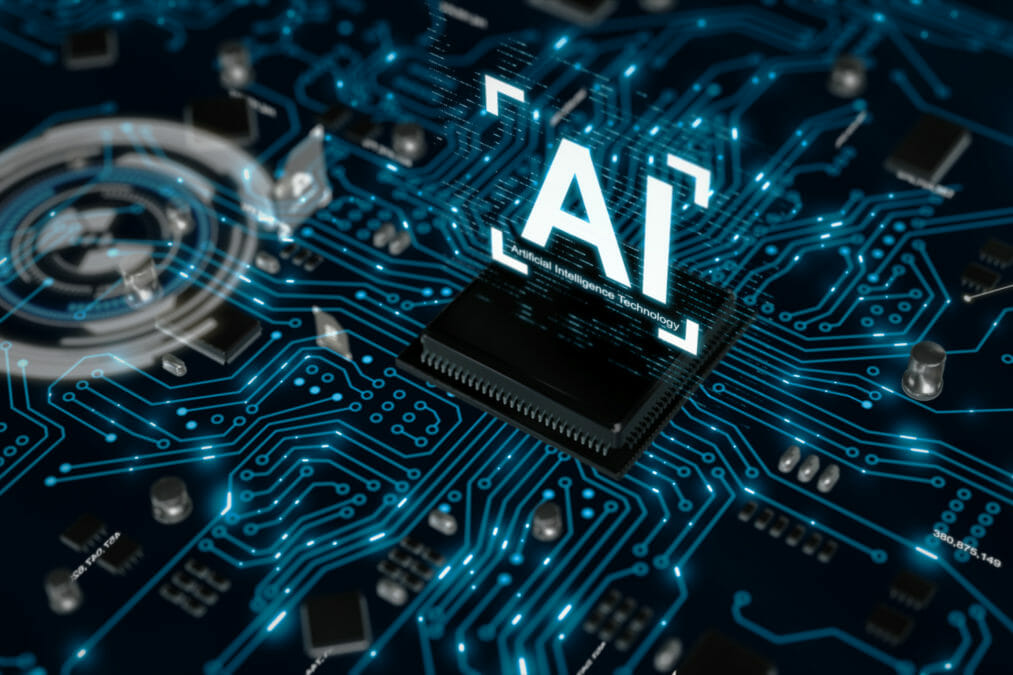Predicting the future is a tough exercise in any given year. These past months, however, have seen such a tumultuous period of uncertainty that estimating the outlook for the AI sector in 2021 poses a particular challenge. But there are certainly trends from which we can extrapolate, and I will attempt to do so through my perspective working with AI scaleups. And, amidst lockdowns and elections, 2020 has been another exciting year for AI, rounded off by an incredible breakthrough at DeepMind with their launch of AlphaFold. Aside from the longer-term hype, we see a real acceleration of entrepreneurs using AI to solve real-world problems that delivers impact today, some of whom have provided predictions below.
Venture capital investment into AI startups has been on a meteoric rise for a number of years; Tech Nation data showed that investment increased six-fold from 2014-18. As a recent State of AI 2020 report shows, investment into AI continues to be strong in 2020 – despite Covid-19 – and this seems set to continue into 2021. The sector shows signs of maturing too: companies raising over $100m have captured 10% of overall funding since 2018, Darktrace was rumoured to be exploring an IPO, and we see an increasing prevalence of success stories in AI like Tessian, Tractable, and Signal AI.
The fallout from Covid-19 may well accelerate the adoption of AI. For example, a new era of remote work has necessitated that manual processes become digital overnight, and healthcare has seen an unprecedented injection of innovation via AI. Many companies are also onshoring and automating their supply chains in response to the pandemic’s effect on global supply chains, with AI central to many firms’ plans as they seek to optimise their processes and bring down costs.
For 2021, here are the three top areas where I believe machine learning will make real strides, with input from entrepreneurs innovating in each space:
Construction
Our Applied AI programme featured more companies tackling construction this year than almost any other sector. With projects continuing through the Covid-19 fallout, and with investment into infrastructure central to government strategies to ‘build back better’, 2021 will be a year to watch for the implementation of AI in the sector. Between companies like Sensat, nPlan, Continuum Industries, and Nodes & Links, there are a plethora of up-and-coming AI companies set to make their mark over the next year.
Digital transformation in the construction industry: is an AI revolution on the way?
Sakthy Selvakumaranm, a chartered civil engineer and founder of BKWai, predicts: “The construction and built environment sectors need to innovate rapidly to change the way we build, operate and maintain infrastructure – and AI is going to be key to unlocking these changes.
“In 2021, AI will really start to be visible in construction across a number of applications. The sector may not openly acknowledge or understand it yet, but it will be able to see improved outcomes in safety, quality and asset management.
“Stakeholders across the project lifecycle — from designers, construction companies, operators, owners, and service providers — can no longer afford to conceive of AI as only relevant in “high tech” sectors.
“Image recognition can assess video streams collected on work sites to identify potential hazards and unsafe behaviours. Learning from hundreds of projects and help understand potential implementation delays and restrictions in scheduling.”
AI in climate change
This will be a theme throughout 2021 as we see the emergence of entrepreneurs using AI to move us towards a more sustainable future, and the drive towards ‘net zero’ becomes core to many governments’ strategies, for example the UK Government’s push to become net zero by 2050.
“As the intelligence capabilities of AI expand, AI will continue to gain investment and support across the world as a viable solution to reducing emissions and protecting natural resources”, writes Victor Dewulf, CEO of Recycleye.
“With the UK failing to achieve its 50% recycling target by the end of 2020, AI may have the power to eliminate waste. As global consumption continues to increase, waste levels are rising faster than the rate at which waste can be processed, leaving many recyclable materials left to landfill.
“With the application of AI, the processing of waste is not only faster, which enables a rise in the volume of materials recycled, but as a cheaper alternative to human labour, a wider variety of materials can also begin to be recycled.”
Sustainable transformation: why climate change and the digital agenda are more closely linked than ever
Mark Hodgson, chief business officer at Cervest, adds: “In 2021, pioneering technology will begin solving a fundamental problem: pricing climate into financial decisions for improving competitive advantage and greater resilience against uncertainty.
“We are fast approaching a point where the scale, comprehensiveness, resolution and complexity of AI-driven climate signals can provide us an unprecedented ability to understand the future risk and value of built assets.
“In 2021, the convergence of AI, earth sciences and mega-scale computing will enable us to address this problem for the first time. More businesses, governments and communities will be able to take action on the assets they care about based on a continually improving understanding of climate risk, accessed as and when they need it.”
Healthcare & life sciences
It is no surprise to see this category included, not only because of events this year, but also due to bold, new initiatives like the NHSx AI Lab launched in 2019.
As Pahini Pandya, CEO of Panakeia, states: “In 2020, Covid-19 set-off a chain reaction that resulted in unparalleled speed of digital transformation, especially in primary care where we have seen rapid adoption of telehealth solutions for remote consultations and patient monitoring being procured and established very quickly.
“But the digital transformation in healthcare is far from over. Covid-19 has also created disruptions in diagnosing and managing other health conditions, especially chronic ones. A stark example of this is suspension of cancer screening programs across several countries.
“To address these issues, healthcare systems such as the NHS have already shown great initiatives around adoption of AI, providing clear routes of entry and support. Next year will, undoubtedly, see increasing traction for companies offering AI-innovations tackling various aspects of care pathways such as cancer screening, improved case triaging, faster diagnosis and informing treatment.”
AI use cases in healthcare for Covid-19 and beyond
Miriam Cha, co-founder of Rahko, a company that employs quantum machine learning for life sciences, adds: “AI is changing the game in our ability to discover new drugs, and will continue to do so in 2021.
“In recent decades, drug discovery has slowed down and become increasingly expensive, suffering two key bottlenecks – low speed and low accuracy. Pharmaceuticals companies will continue to adopt AI to discover more, with unprecedented speed, at a fraction of the cost.
“For example, AI gives speedups of orders of magnitude in virtual high throughput screening, allowing us to screen vastly larger molecule pools to find better candidates for new drugs. Generative modelling allows us to create molecules to specification with the properties needed e.g. for drug safety.
“Quantum computing will also continue to progress in 2021, with important implications for drug discovery. Quantum computers are currently in their infancy, but at scale will allow us to model complex systems with unprecedented accuracy. This will allow us to understand at a much finer level how drugs behave and interact with the body.”
Across these three fields in particular, I hope 2021 will be a year where the conversation shifts from longer-term, esoteric hype, towards an appreciation of what machine learning can now deliver in vertical applications for real-world impact, and that is exactly what we will need in 2021. The challenge to rebuild our economies post-Covid-19 will be monumental and AI must have a part to play. As the saying goes, ‘if not now, when?’








